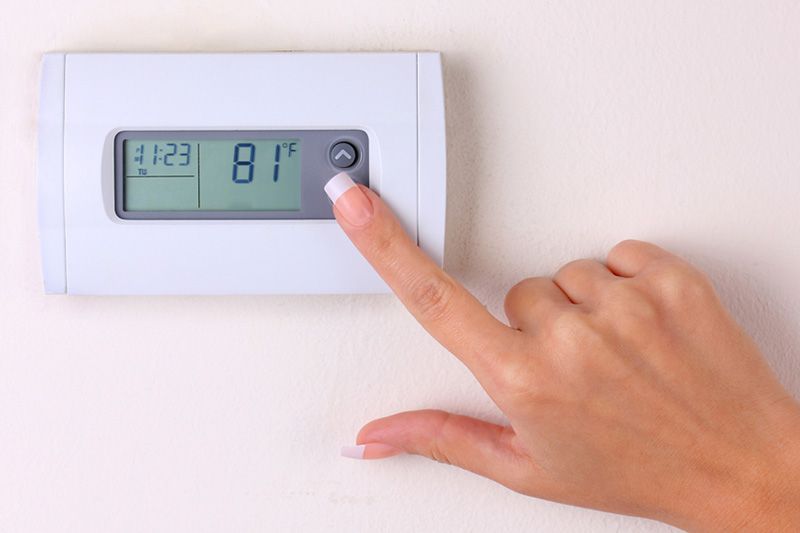Thermostat 101 Basics

Every team needs a leader.
In the heating, ventilation, and air conditioning (HVAC) industry, your thermostat is the undisputed leader of the heating and cooling team. It signals your furnace and air conditioner (AC) when to turn on and off. Whenever your thermostat detects a temperature change that’s different from the desired setting in your East Lansing home, it barks out a new directive to adjust the indoor climate.
You can trust our team at North Winds Heating & Cooling to always add value and comfort to your Michigan home or business throughout the year. We offer practical solutions designed to extend the service life and operating efficiency of your HVAC system—including your thermostat.
What Type of Thermostat Should I Buy?
The thermostat you choose will depend on your needs. Here are the three basic models, along with some pros and cons to each one:
1. Standard Thermostats
The standard non-programmable thermostat is the most common, least expensive, and easiest to use. This is the one most people remember from their childhood homes. The round Honeywell unit designed in 1953 has become so embedded in our American way of life that it has made its way to the Smithsonian National Museum of American History. And it is still in use today.
Pros: Many people favor a simple mechanical design with physical switches. Your biggest decisions involve setting the target temperature and deciding whether to leave the fan on AUTO or switch it to ON. There isn’t much to this unit, so there isn’t much that can go wrong.
Cons: When you adjust the thermostat because of a change in the outdoor temperature, you’ll need to remember to readjust it back to your desired setting later. This model is the least energy efficient of these three options as well.
2. Programmable Thermostats
The programmable thermostat is a more energy-efficient model. You can have a home and away setting. When you are home, you have the temperature set at your ideal comfort setting. When you are away, you can raise or lower your thermostat setting to save energy.
The climate may not be as conducive, but you won’t be there anyway. The key is to remember it takes a bit of time for your home’s climate to get to your ideal setting, so be sure to allow for that in the programming.
Pros: The programmable thermostat will save energy and prolong the life of your heating and cooling system. According to the US Environmental Protection Agency, a programmable thermostat can lower your heating and cooling costs up to 30 percent.
Cons: The programmable thermostat is a bit more expensive upfront compared to a standard model. Some may argue that starting and stopping your system is more taxing than the energy it saves.
3. Smart Thermostats
This is the new breed of thermostats. The smart thermostat learns the behavior patterns of your home. These thermostats offer the latest advances in home automation technology—they can detect when you are home or away, weather patterns, and whether there is an issue with your HVAC system.
By using Wi-Fi, you can remotely control your smart thermostat through a computer, tablet, and smartphone. This is why they’re called smart! Once a smart thermostat has been in place for a while, it can adjust itself. It can show you energy consumption in real time.
Pros: You can control your climate remotely from within your home or away from your East Lansing home. You can monitor your home’s energy usage.
Cons:This is the most expensive option.
Learn More About Thermostats Today
Never take your HVAC thermostat for granted. It plays a vital role in maintaining the heating and cooling system in your East Lansing, MI, home. Call 517-225-3430 or request service online to have one of our professionals at North Winds Heating & Cooling provide you with more information about improving the comfort and safety of your home.
